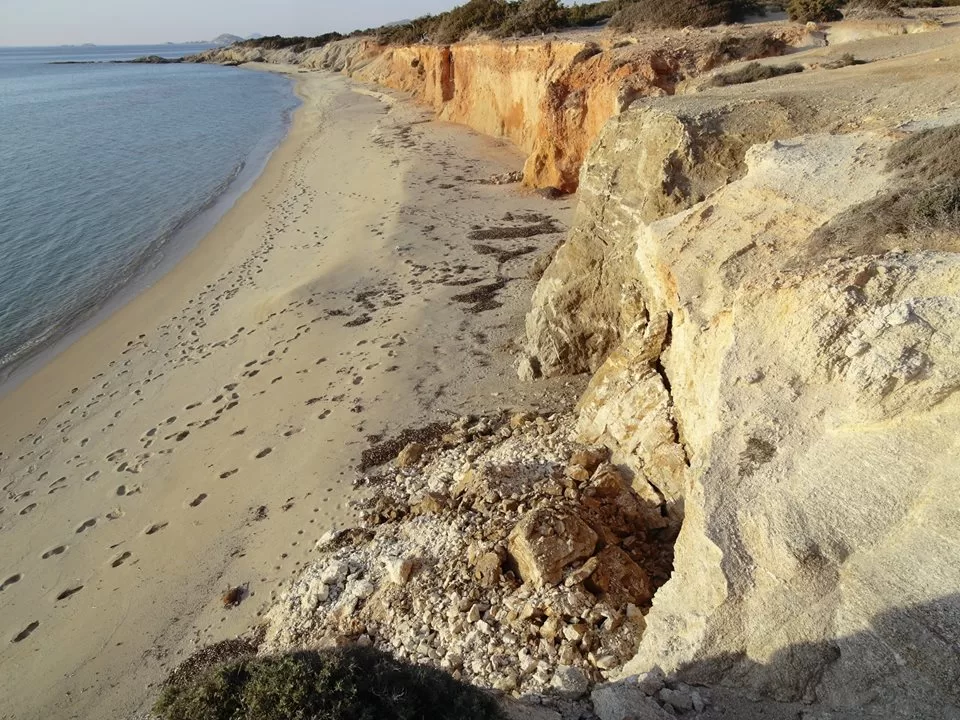The Context
Climate change is a phenomenon characterized by both long-term and short-term shifts in temperatures and weather patterns. These shifts can occur naturally, such as through variations in the solar cycle, which are typically long-term. However, since the 1800s, human activities have primarily driven short-term climate changes. Regular observations indicate significant morphological changes across various geomorphological environments, and these are expected to become even more frequent.
Aligned with the specific goals of the Erasmus+ program, this project aims to enhance and update knowledge on the critical topic of climate change. It particularly focuses on illustrating the extent to which specific geological environments have been impacted by climate change, along with tectonic or isostatic influences. Adopting a fresh perspective on the climate change phenomenon will substantially enrich the university curriculum.
The creation of educational materials will be tailored to the students’ needs and the field research conducted, ensuring they receive essential knowledge and fostering their interest in the subject. The training will integrate theoretical and practical elements, encouraging creative learning and active engagement. This approach will specifically address the transformations observed in coastal and deltaic environments as a result of climate change, tectonic shifts, isostatic movements, and their subsequent reconstruction.
The Innovation
Enhancing Learning through Advanced Applications
“Tracing Climate Change” brings an innovative approach to educating students about the impact of climate change on diverse geomorphological environments.
Central to this project is the integration of advanced digital technologies in courses like Geomorphology, Physical Geography, Environmental Studies, and Quaternary Geology across partner universities. This initiative not only enriches the curriculum but also sharpens students’ critical thinking and heightens their interest in climate-related issues. Furthermore, it enhances their digital proficiency, fostering a more technologically adept future generation. The project is set to invigorate academic research, draw new students and researchers, and diversify the academic offerings in these fields, reaching a broad audience. A key component of this innovation is a series of online workshops. These workshops will cover a spectrum of activities, starting with the basic effects of climate change on landscapes and progressively delving into more complex, immersive learning experiences.

The Objectives
Charting a Course for Enhanced Environmental Understanding and Global Collaboration
Main Goals
Expand Students’ Knowledge: Broaden students’ understanding of geomorphological processes and the diverse impacts of climate change.
Develop Skills: Enhance critical thinking and key competencies to better comprehend global environmental changes.
International Perspective: Introduce students to various geomorphological environments beyond their home country, fostering a broader, international-level understanding.
Enhance Cooperation: Increase collaboration among European higher education institutions.
Foster Intercultural Dialogue: Strengthen partnerships and exchange ideas and experiences across nations.
Expected Key Results
Educational Impact: Increase awareness and education about climate change’s effects on geomorphology.
Understanding Geomorphological Environments: Gain deeper insights through reconstruction studies.
Open Access Learning: Provide e-class materials to all CIVIS and non-CIVIS universities.
Intercultural and European Partnership: Build strong links for transnational cooperation.
Teamwork Development: Boost collaboration skills, emphasizing teamwork and mutual respect in geoscience fields.
Environmental Awareness: Raise consciousness about environmental issues for better decision-making and nature preservation.
University Networking: Create and reinforce connections among universities with relevant expertise.
Conclusive Conference: Host a final event to discuss project results and share insights with stakeholders.
Utilize Modern Media: Produce audio-visual content for online education, leveraging current technology trends.
Course Enrichment: Improve course content in Geomorphology, Physical Geography, Environment, Climate Changes, and Quaternary Geology.
Additional Outcomes
Research Integration: Combine theoretical and field research for individualized results.
Success Stories: Publish a booklet highlighting achievements from online workshops.
Social Media Outreach: Effectively use social media for widespread information dissemination. Changes, and Quaternary Geology.